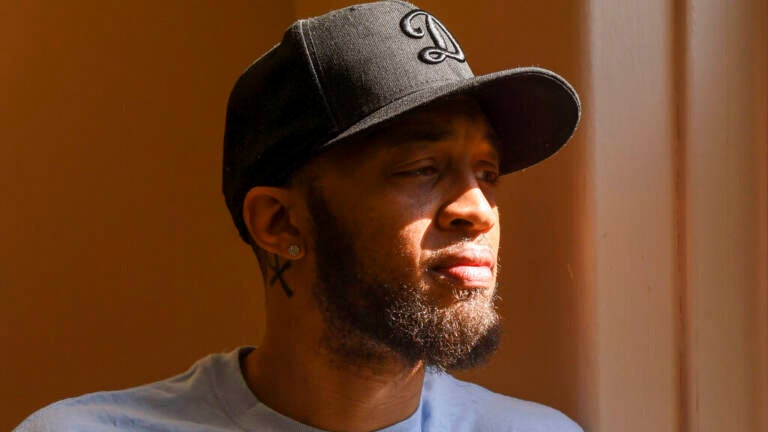The end of Roe v. Wade has huge economic implications for male partners, too

Nine years ago Donovan Atterberry's girlfriend became pregnant, but a lethal chromosomal disorder was detected. She chose to terminate the pregnancy, and Atterberry says "it changed my whole perspective ... on bodily autonomy and things of that nature." He's now an organizer for New Voices for Reproductive Justice, which advocates for Black womens' health care, including access to abortion. (Nick Cammett/AP)
There’s a mounting body of evidence on how having or being denied an abortion affects pregnant people, including impacts on their mental health and the finances of them and their children. The effects on their male partners have received less attention.
In the wake of the Supreme Court overturning Roe v. Wade, experts say that no longer should be the case.
“It’s really naïve to think that the repeal of Roe is only going to impact women and pregnant people,” said Dr. Bethany Everett, a professor of sociology at the University of Utah.
While the issue disproportionately impacts people who can get pregnant, Dr. Everett says it’s important to look at abortion access from all sides, as limits on abortion access likely will have broader implications for society as a whole.
One in five men have been involved in an abortion, one study finds
Research on the impact of abortions on male partners has been limited, but that doesn’t mean the issue isn’t relevant to men.
Using existing data from the National Survey of Family Growth, a recent study estimates that one in five men have impregnated someone who’s had an abortion. That’s likely an undercount, according to Dr. Brian Nguyen, a professor of obstetrics and gynecology at the University of Southern California, who helped oversee the project.
“Not all men are aware of the pregnancies they cause and those that end in abortion,” said Dr. Nguyen. “For some men who may see abortion as a failure on their part to be a better partner or potential father, or for those whose social and cultural backgrounds have made them feel as if abortion is wrong, disclosing an abortion can be challenging or uncomfortable.
In a separate survey of more than 200 male partners of women seeking procedures at abortion clinics, Dr. Nguyen and his team found that about half of them already had children, and supported termination of a pregnancy in order to better provide for their existing family.
Young men who have been involved in abortions are more likely to pursue college and earn more
In her study published in the Journal of Adolescent Health, Dr. Everett and her team found that young men who were involved with a pregnancy and whose partners had an abortion were nearly four times more likely to graduate from college than those whose partners gave birth.
Her research also suggests that males under the age of 20 who were affected by an abortion were likely to earn more money than those who became parents but did not live with their child. Earnings between those who became parents and lived with their child and those whose partners terminated a pregnancy were about the same, Everett said, possibly because those who became teen fathers entered the workforce sooner.
“But still, you likely would see later down the road economic capital build among those who were able to pursue their educational careers,” she adds.
Those differences are significant but not surprising. According to Dr. Everett, previous research generally has linked delayed parenthood with greater educational achievement and future socioeconomic status for both men and women.
“Parents should really think hard about not just what the repeal of Roe is going to mean for their daughters, but what it’s going to mean for their sons,” Dr. Everett said. “Their sons may become dads much earlier than they’re prepared for.”
Debunking the “us v. them” narrative between men and women
Dr. Nguyen has been working to help people recognize cis men’s role in reproductive health for more than a decade. He sees his work as inherently female focused and in pursuit of gender equality, but to others that hasn’t always been clear.
“The gender-based discrimination and disparity that women have faced because of patriarchal power structures have really put a rift between the public’s mental image of men and women when it comes to reproductive rights,” Dr. Nguyen said.
He believes that the fight for abortion access would benefit if cis men fully engaged in the cause, and demonstrating their tangible stakes could help.
“When it comes to reproductive rights, we hear a lot of ‘her body, her choice’ and ‘I’ll support her no matter what.’ But that’s passive support,” he said. “To me, what men need to be risking is their own comfort of having to grapple with an issue that women are forced to do biologically.”




